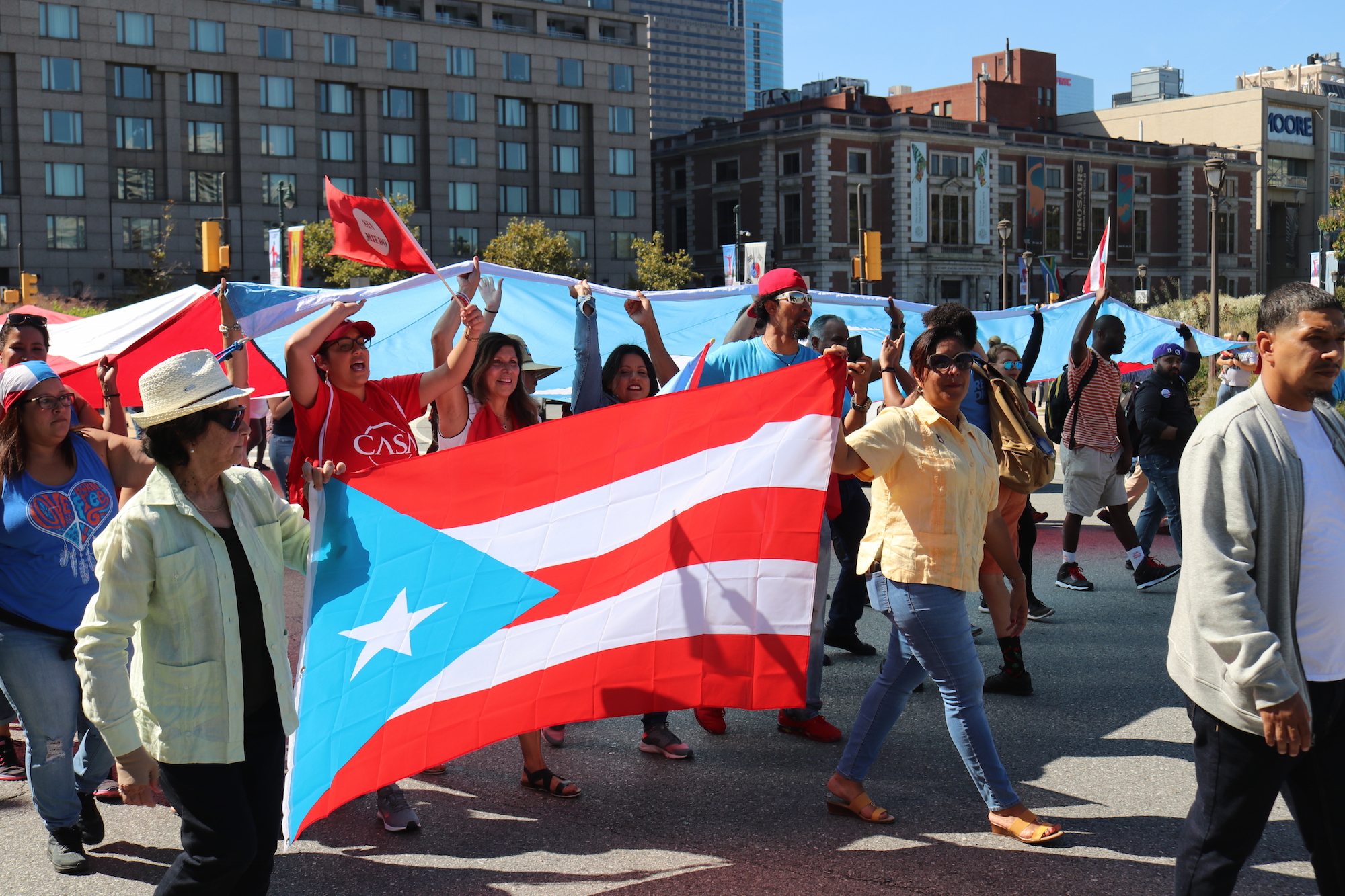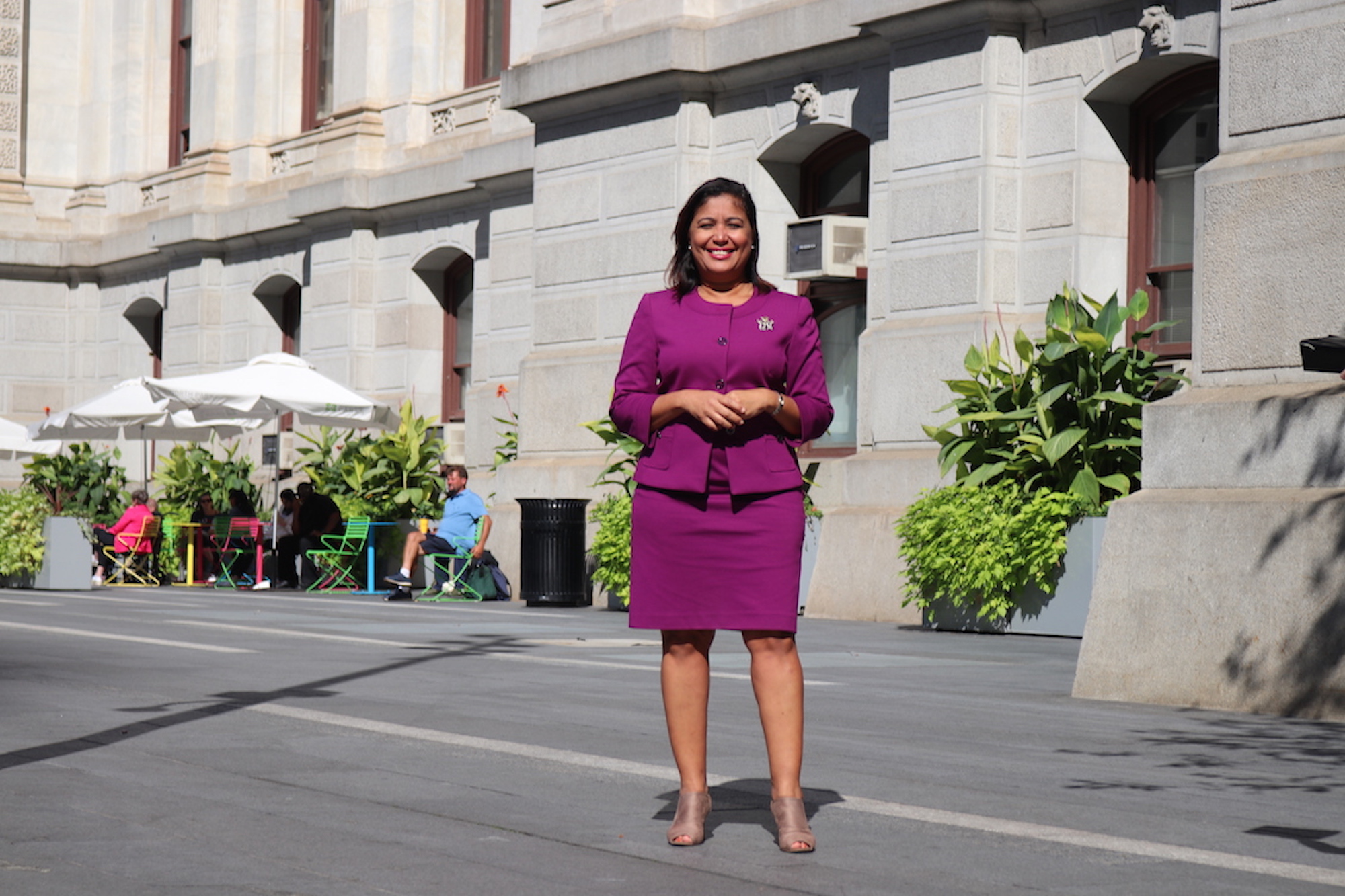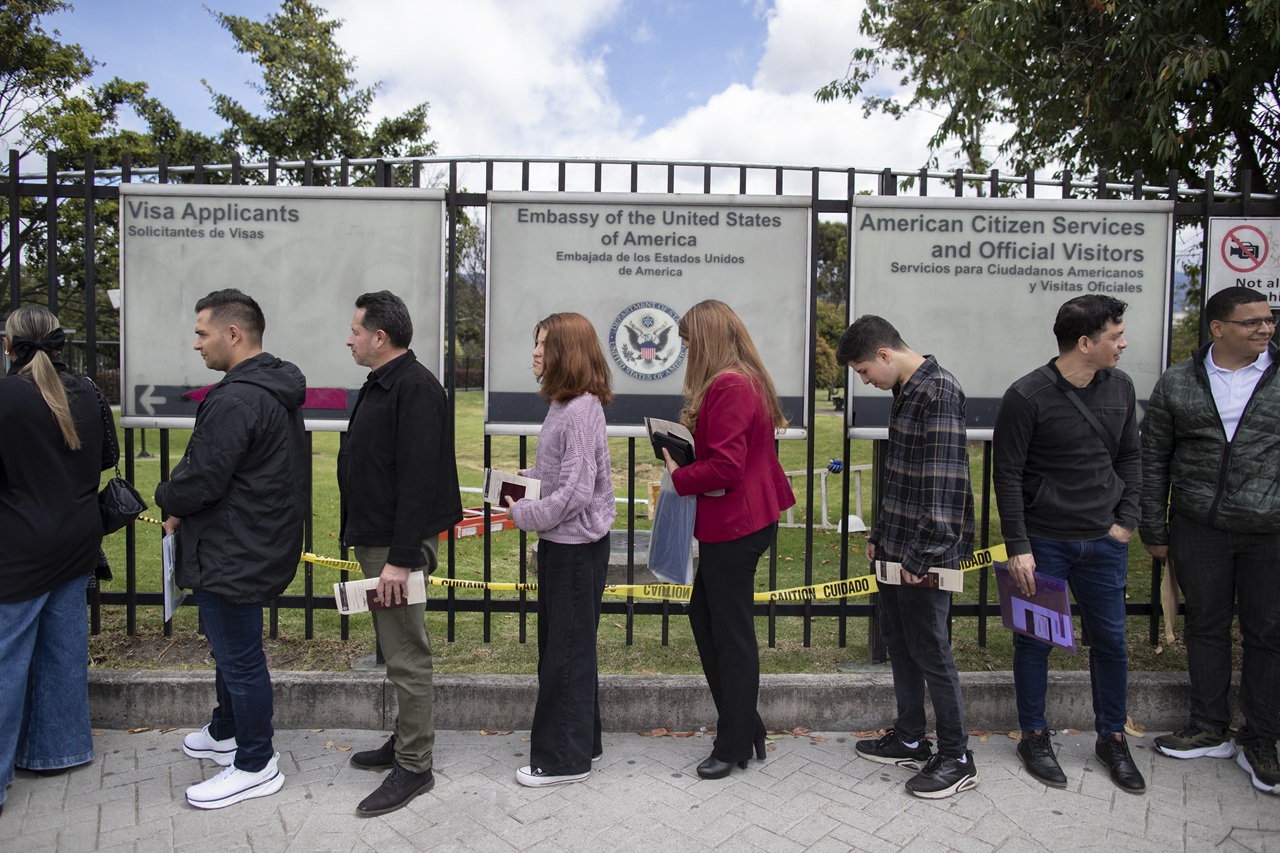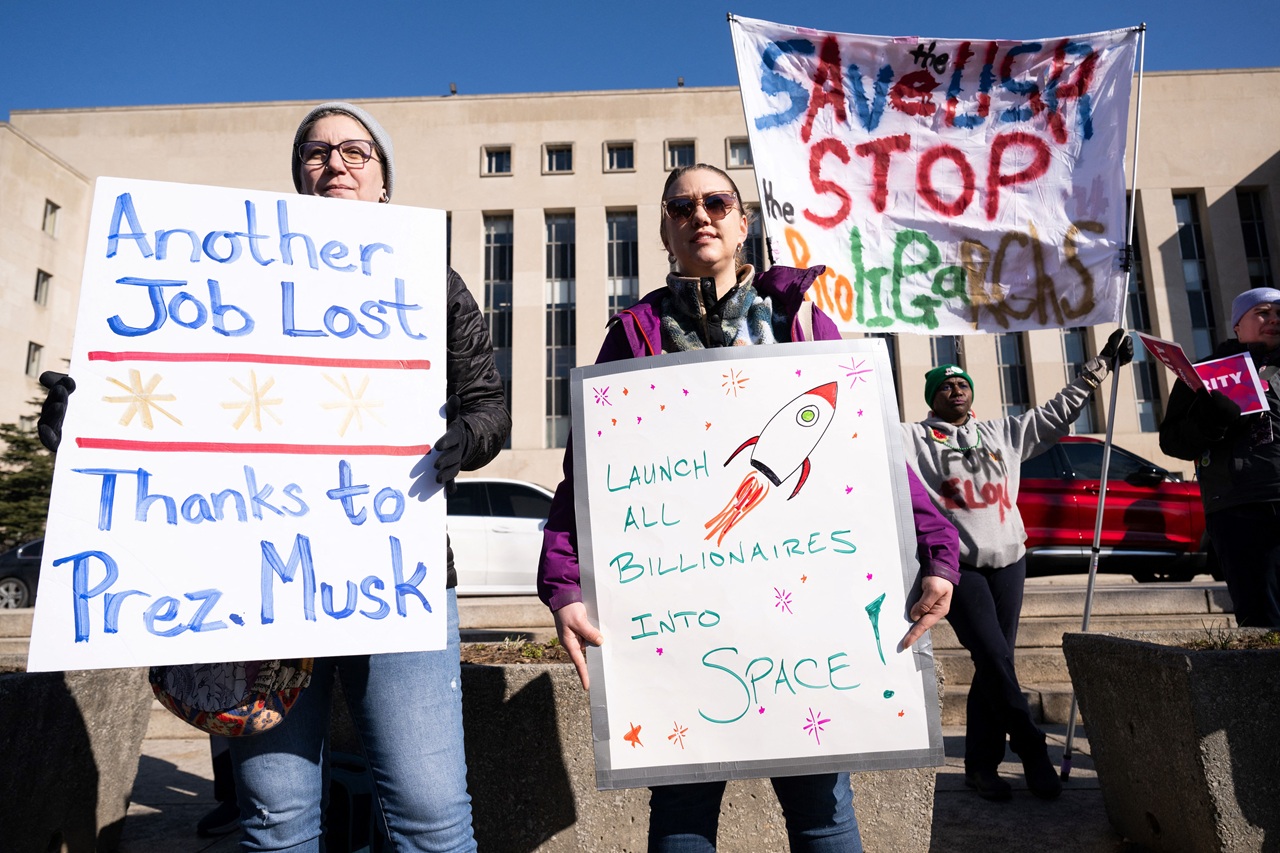
From Hunting Park to City Hall: The Journey of María Quiñones-Sánchez
In January, María will enter her 13th year on City Council. With her record, she’s confident she’ll be on the shortlist for Mayor come 2023.
In her 12 years as a City Council member representing District 7 at City Hall, María Quiñones-Sánchez says she’s never had the chance to reflect on her journey as a public servant.
It began in Hunting Park, where Quiñones-Sánchez remembers translating for her Puerto Rican mother, who then offered her daughter’s services to her neighbors and friends.
Whether it was making a phone call or filling out a form, a young Quiñones-Sánchez became in many ways, the conduit between her Spanish-speaking community and the wider, English-speaking world.
“It got to a point at one point where I told my neighbors I would do this thing with the shade. If my shade was down, please don’t come,” said Quiñones-Sánchez.
It’s a policy she still uses to this day for people on her block in Norris Square, and an early experience that instilled a willingness in Quiñones-Sánchez to always try to resolve any problem.
She says she often takes this skill for granted, but thinking back, it’s a rare quality to develop at such a young age and it’s shaped her career since then.
“I always knew I wanted to help people and it was very gratifying to be able to do that,” said Quiñones-Sánchez.
With that early mission in mind, Quiñones-Sánchez jumped into a career as a community activist.
In that role, she took part in many different political and social campaigns on behalf of her community and raised millions for many different causes.
Politically, Quiñones-Sánchez remembered her first election, during which, she registered people to vote and was a self-described “human bulletin board” for her candidate.
“And I still wasn’t old enough to vote,” she recalled.
Later on, when Quiñones-Sánchez was regional director for the Puerto Rico Federal Affairs Administration, she led its seven-city Get-Out-the-Vote (GOTV) campaign. In the end, GOTV registered 32,000 new voters and increased turnout in targeted areas up to 35%.
Socially, she served as the first female and youngest executive director in the history of ASPIRA — an organization dedicated to developing education and leadership opportunities for Hispanic youth.
While there, her efforts resulted in the creation of Pennsylvania’s first bilingual charter school — Eugenio Maria de Hostos Community Charter School — in her neighborhood of Hunting Park.

To this day, Quiñones-Sánchez credits her neighborhood with inspiring a lot of her actions while in office.
“I’m Hunting Park made and proud,” she said, “because the legislative record reflects the real-life experiences of my friends growing up in Hunting Park.”
One example Quiñones-Sánchez cited was her love of open spaces, crediting it to her access to Hunting Park growing up.
“We had a pool and we had a gazebo,” said Quiñones-Sánchez.
It is also one of the bigger plots of open park space in the city. In 2009, during her first term on City Council, Quiñones-Sánchez was a contributor to the Fairmount Park Conservancy’s revitalization project for Hunting Park — despite it not technically being in her district.
“The park is physically in Clarke’s district, but he’s like: ‘Everything that goes on there is about Maria,’” she said. “It is personal and I’m proud of that.”
The project is also ongoing. Most recently, Quiñones-Sánchez appeared at the unveiling of new handball courts in June 2018.
In regards to her neighborhood’s influence on certain policies, Quiñones-Sánchez said she looked at personal data in Hunting Park when implementing Owner-Occupied Payment Agreements (OOPA) for overdue property taxes and the Tiered Assistance Program (TAP) for water bills.
She said both are arguably her most successful pieces of legislation and based on seeing the lives of her neighbors and friends in the neighborhood who often had to choose which bill to pay on a daily basis.
“I read, and I know policy,” said Quiñones-Sánchez, “but the lived experience is really what has generated the best policy.”
That being said, before she could be an effective legislator, Quiñones-Sánchez admits there was a steep learning curve going from activist to political candidate.
Before her triumph in 2007, Quiñones-Sánchez led an unsuccessful campaign for City Council in 1999.
“I wanted to be the operative and the person to help people, but a campaign is not the time,” she said. “It’s to tell a story and organize to get elected.”
What followed the failed run was eight years of tough decisions.
“If you’re going to do this, then you’re going to do this to win,” she remembered telling herself. “The best way to help the people you want to help is to be the most effective candidate and then the most effective legislator.”
It meant Quiñones-Sánchez needed to go back to the basics and confront some of the things she was most averse to if she were to succeed.
“Making a commitment that in order to be effective and provide a voice to the people I want to provide voice means I have to do things I’m the most uncomfortable doing,” said Quiñones-Sánchez
It started by taking a few classes around campaign fundraising — something she called a “necessary evil.”
“After raising millions of dollars for causes and things I believe in, I still hate it,” said Quiñones-Sánchez.
Message-wise, she had to learn to tell her story — a process that her upbringing held her back from at first.
RELATED CONTENT
“Culturally, Latina women are not taught to tell their stories,” said Quiñones-Sánchez.
In the end, after her eight-year hiatus, Quiñones-Sánchez won her second time around in November 2007. On Election Day, she won 80% of the vote to become the first Latina ever elected to represent a district on Philadelphia City Council.
The responsibility of being the first Latina is something Quiñones-Sánchez takes very seriously.
“You don’t want to be the last and you don’t want to be the only,” she said.
To make sure that won’t become a reality, Quiñones-Sánchez has prided herself on her accessibility. While she said it is sometimes hard to manage, the Councilwoman tries to return all her calls, attend as many events as possible, and holds weekly coffee talks with people in her district.
“I try to make myself as available to a classroom as I do a constituent who just wants to talk one-on-one,” she said.
In terms of mentoring, Quiñones-Sánchez’s has done it for many young women — some of whom she said are now much more successful than herself. Her office also offers internships for young women every year.
Her advice to all of them is to follow their own path. What she did is something to learn from, but it happened in a different time, meaning there’s new obstacles to overcome and new ways to solve old ones.
“You gotta do it your way, you gotta create your own pathway,” said Quiñones-Sánchez.
In many ways, Quiñones-Sánchez is still charting her own path in politics 12 years after first being elected.
She’s done her best to be the champion and cheerleader of a district that’s long struggled with chronic poverty, crime and drug addiction as one of a 17-member legislative body.
What’s she lost in energy and passion over the years, Quiñones-Sánchez has gained in wisdom and a respect for the democratic process as a means of causing real change.
“I never thought I could adhere to those rules,” she said.
Going into her fourth consecutive term on City Council, Quiñones-Sánchez is focused on many different things. For one, she wants to work towards changing the approach to the opioid crisis, for which Kensington is the primary setting, from a short-term to long-term vision.
“How do we move away from the crisis mode and make institutional changes?” Said Quiñones-Sánchez.
Another debate she hopes to play a central role is with land reform. Many years ago, she was an outlier when creating the Philadelphia Land Bank, but said some of her colleagues are finally ready to move forward on legislation that could make it more effective.
Beyond the next four years, Quiñones-Sánchez said she believes it will be time for Philadelphia to elect its first female mayor. And while recognizing other very accomplished women who could vie for the spot, she’s confident pitting her record against any of them come 2023.
“It’s our time,” said Quiñones-Sánchez.












LEAVE A COMMENT: